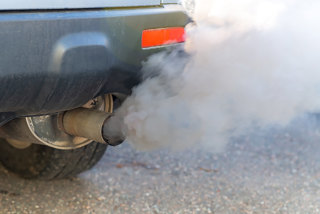Fleet Alliance says that a lack of clarity around Government policy towards diesel vehicles is behind the first-ever increase in average carbon dioxide (CO2) levels on its fleet.
New analysis by the leasing and fleet management specialist reveals that average CO2 emissions across its 28,000 vehicle fleet increased from 115g/km in 2017 to 125g/km in 2018, a rise of almost 9%.
The Fleet Alliance figures are in line with those released by the Society of Motor Manufacturers and Traders (SMMT) at the start of the year which showed that carbon tailpipe emissions for new cars in 2018 rose for a second successive year, by 2.9% to 124.5g/km, despite an improvement in vehicle efficiency.
Furthermore, analysis by Jato Dynamics found that CO2 emissions reached their highest level since 2014 last year at 120.5g/km, as car buyers switched wholesale from diesel to petrol following changes in tax and pollution laws.
At Fleet Alliance, the increase in CO2 emissions in 2018 was most pronounced amongst personal contract hire (PCH) customers, where average CO2 emissions went up from 127g/km in 2017 to 138g/km in 2018, a rise of 8.66%.
The increase can be explained by a correlated year-on-year increase in orders of higher CO2-emitting petrol cars by PCH customers of around 13%, while orders of diesels have declined by the same amount.
In 2017, diesel cars accounted for 60.8% of all orders by PCH customers, compared to just 47.5% in 2018. However, at the same time, orders of petrol cars have soared from 37.9% of all PCH sales in 2017 to 50.7% in 2018.
The remainder of the PCH fleet in 2018 was made up of petrol electric hybrids (1.02%), plug in petrol electric hybrids (0.51%) and electric vehicles (0.15%).
While less pronounced, the trend of rising CO2 emission levels was repeated amongst business contract hire (BCH) customers, with average emissions rising from 114g/km in 2017 to 117g/km in 2018.
Sales of diesel cars to BCH customers continued to decline, accounting for 66.6% of orders in 2018, compared to 73.35% in 2017. At the same time, orders of petrol cars increased from 16.96% to 21.65% as fleets continued to switch away from diesel power.
As a consequence, orders for alternative fuel vehicles also increased year-on-year. Plug in electric hybrids now account for 7.81% of the BCH fleet while petrol electric hybrids account for 3.59% and pure electric vehicles just 0.27%.
There was now a need for Government to reconsider its advice on diesel vehicles, says Fleet Alliance managing director, Martin Brown, as the current thinking had only served to spread confusion in the market, depress sales of diesel cars and increase carbon dioxide levels for only the second time in more than 20 years.
“What we are seeing firsthand is a direct result of misguided Government policy and an anti-diesel stance which is completely unjustified,” he said.
“It is almost unthinkable that we should see CO2 emissions increase on a national level after all the hard work undertaken in bringing them down over the last 20 years.
“But the figures from our own fleet back up the findings by the SMMT and JATO – namely that CO2 levels are on the rise, and it’s largely attributable to the Government’s punitive anti-diesel stance and a lack of joined up thinking on national transport policy.”
Glasgow based fleet solutions provider, Fleet Alliance, is an independent supplier of vehicle funding and fleet management services.
Following the acquisition of Neva Consultants, it manages around 28,000 vehicles on behalf of corporate clients.






















Login to comment
Comments
No comments have been made yet.